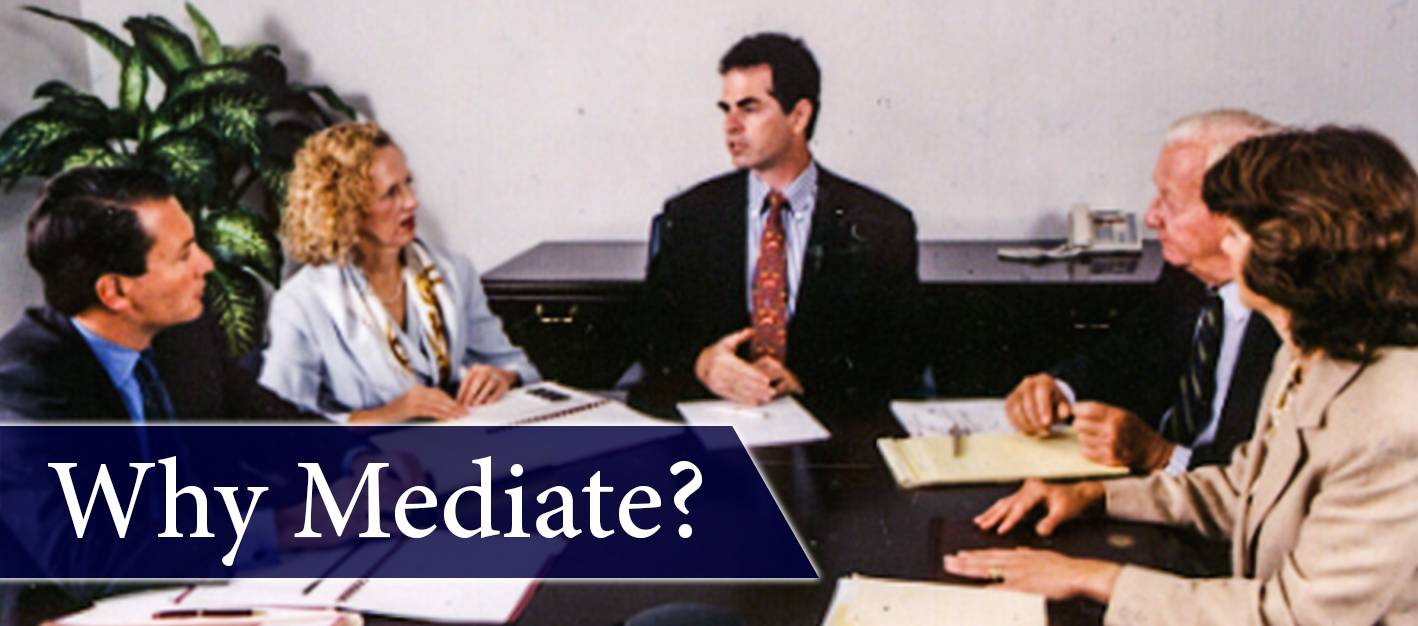
Mediation dramatically reduces the time, cost, disruption, adverse publicity, relationship loss, and lack of control engendered by litigation.
Time.
Seasoned litigators know that nearly all cases eventually settle. The trouble is that it might take years for a pending case to settle, often just before, during or after trial, during the pendency of an appeal, or even during the post-judgment enforcement phase. Years may pass without satisfaction to either party.
Cost.
Even litigators who profit from protracted litigation feel uncomfortable billing their clients the substantial amounts that are frequently incurred. In addition to legal fees, are costs of experts, document reproduction, and the indirect costs of parties and witnesses leaving work to attend depositions, hearings or interviews with counsel.
Disruption.
Interminable litigation causes disruption for the parties, who must assist in discovery, attend depositions and prepare for trial. Knowledge of the pendency of a dispute creates a feeling of lack of resolution which can be unsettling to individual parties and disruptive in the workplace.
Adverse Publicity.
Matters litigated in court often find a second courtroom in the press. Even without reporting in journals, information disclosed in court is open to the public forever. And public right-to-know regulations make orders sealing the record more difficult to obtain.
Relationship Loss.
Litigation augments adverse postures. No one likes getting sued; and people rarely like the party they sue. Once the die is cast, the parties’ counsel strive to gather facts designed to show the strengths of their side and the weaknesses of the other.
Lack of Control.
Judges applying set rules, and juries applying their own perspectives to those facts permitted into evidence, determine the outcome of cases. This determination might not consider all factors the parties to the litigation value most, and conversely might be driven by systematic concerns of no direct importance to the parties. Moreover, the relief the parties most desire — an apology, a letter of reference, a job, future business, to be understood, a structured settlement — might not be available in court.
Mediation is a speedier, less expensive route to tailored resolutions, through a confidential process designed to enhance communications and improve relationships.
Speedy Resolutions.
Many matters that would be pending for years have been resolved in mediations lasting one day.
Less Expense and Disruption.
The mediation fee, which can be split by all parties, is a small fraction of the cost of litigation fees incurred over the life of an average case. The truncated mediation process frees parties and witnesses to work undisturbed by depositions, discovery or trial.
Tailored Resolutions.
Mediation permits parties to fashion remedies designed to fit the unique needs, values and circumstances of the parties, permitting “win/win” solutions. Structured payments, letters of recommendation or apology, confidentiality agreements, barter and agreements for future business are just a few of the resolutions available in mediation that parties may not obtain from judgments after trial.
Confidentiality.
Mediation lets parties keep sensitive matters confined to the bargaining table — not trumpeted abroad. Plus, the confidentiality of the process, and the confidentiality of caucus sessions (where each party may meet privately with the mediator), encourages the parties to explore the contours of their dispute, their strengths and weaknesses, their interests and their options for resolving the dispute — with a candor and depth — that could never emerge in a court context.
Enhanced Communications.
With the guidance of a professional in dispute resolution, modelling active listening skills, parties are encouraged to communicate in more effective ways. This diffuses tensions and misunderstanding that impede negotiations; and, in permitting freer, clearer expression, helps parties find satisfaction in being heard. Communications skills and insights learned through the mediation process last well beyond the resolution of a single dispute.
Improved Relationships.
Employment relationships, ongoing business relationships with trading partners or competitors, family busisess relationships, or even inter-company insurance relationships may all improve as a result of the collaborative nature of the mediation process.